Not too long ago, the mere thought of artificial intelligence (AI) revolutionizing the hiring process seemed like science fiction. Fast forward to today, and AI has seamlessly integrated itself into the fabric of HR, promising to reshape the hiring landscape. In this blog post, we’ll explore how AI is changing the game in HR, providing a glimpse into the present and a peek into the future.
The Rise of AI in HR: A Game-Changer
Gone are the days of manual resume scanning and arduous hiring processes. According to Predictive Hire, a whopping 55% of companies are investing more in automated recruiting with AI, aiming to achieve more with less. This surge in AI adoption is not about replacing human expertise but enhancing it. AI has proven beneficial for short-staffed HR departments, alleviating administrative burdens, and expediting the hiring process.
Transformations in the Recruiting Process
AI has ushered in a new era for recruitment, bringing about transformative changes. With the ability to sort through numerous resumes simultaneously, pinpointing the right candidates faster by leveraging keyword-focused algorithms, and mitigating personal biases by focusing solely on qualifications, these advancements empower HR professionals. This allows them to efficiently identify top-tier talent and streamline the hiring process for both candidates and companies.
The Evolving Role of Resumes
Resumes, once the linchpin of hiring decisions, are undergoing a metamorphosis. AI’s ability to swiftly analyze resumes and extract key information has shifted the focus from detailed documents to targeted data points. While resumes remain essential, the real value lies in the efficiency that AI brings to the hiring data puzzle.
Balancing Automation and the Human Touch
A common concern with AI integration is the fear of losing the human touch in HR. However, experts argue that AI is not here to replace but to enhance. AI can efficiently filter through vast amounts of data, allowing HR professionals to focus on candidates who align closely with the company’s objectives. The key is striking a balance, utilizing AI for efficiency while ensuring the human element remains integral to decision-making.
Preserving the Human Element: A Crucial Imperative
To maintain a human-centric approach amid AI integration, organizations must establish policies governing AI usage in hiring. Transparency, fairness, and accountability should be at the forefront, ensuring that AI serves as a tool to augment human processes rather than replace them. Moreover, efforts to eliminate biases from AI systems are crucial, as unchecked biases could inadvertently seep into the hiring process.
Looking Ahead: The Future of AI in Recruiting and Hiring
As technology evolves, so too will the capabilities of AI in recruiting and hiring. The next frontier involves making more data-driven decisions. AI’s ability to provide valuable insights will revolutionize the hiring funnel, helping identify and address issues at various stages. Additionally, leveraging AI-driven data will enable organizations to optimize their budgets, channeling resources towards platforms that historically yield the best results.
In conclusion, the integration of AI in HR is not a threat but a powerful ally. As we navigate the future of hiring, striking a delicate balance between automation and the human touch is paramount. AI is here to enhance, not replace, and embracing this symbiotic relationship promises a more efficient and effective hiring landscape for all. The journey ahead is one of continuous evolution, where AI and human expertise coalesce to shape the workforce of tomorrow.

